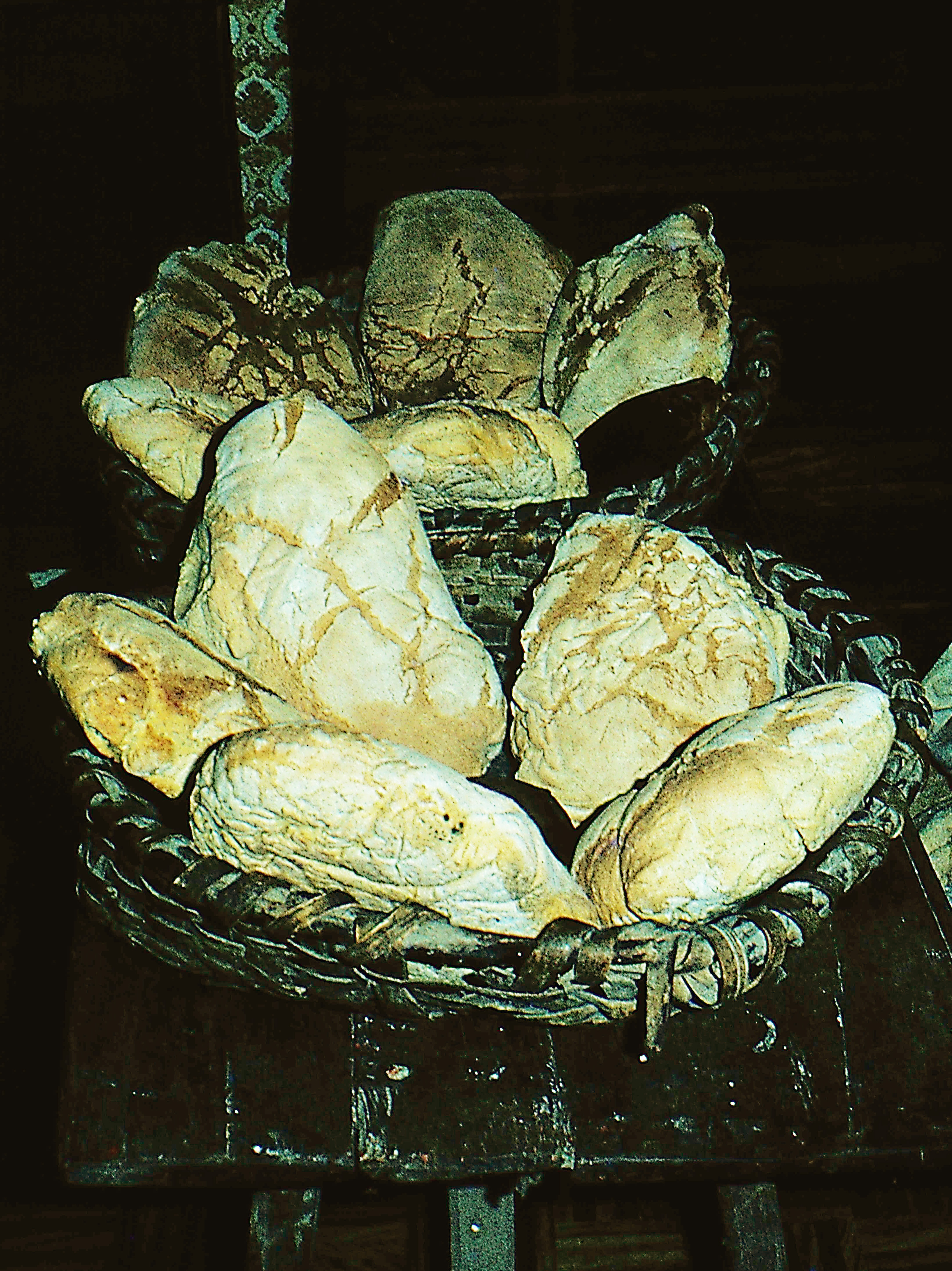Basque ethnography at a glance
The breaking of the Christmas bread, with its rituals and beliefs, is a widespread custom in many countries of Europe, including France (pain de Noël) and Poland (opłatek). This bread, believed to have healing and calming powers, is called ogi salutadorea in Basque, which translates as “health-giving bread”.
Before partaking of the Christmas Eve meal, the family gathered at the dining table and the father said grace. Next, he would hold the freshly home-baked loaf, and before sharing it out amongst the diners, he would break off a piece of crust to save it under the tablecloth or in the kitchen cupboard. In some localities the bread crust was passed from hand to hand around the table.
It was common belief the blessed crust would not get mouldy all year long until the following Christmas Eve. Moreover, it had the virtue of preventing and even curing rabies. That is why a portion of it was given to the family dog, and in some cases, to the domestic animals in the stable.
This restorative and soothing property extended to harmful natural phenomena. There go some examples of it in Bizkaia. At the beginning of the 20th century, in coastal municipalities such as the city of Lekeitio, when a storm struck, the blessed crust used to be thrown in the angry sea for the waters to calm; in the Arratia Valley, it was hurled in the river any time it menaced to overflow and flood fields and houses; and in the area of Durango, it was tossed in the air should a severe thunderstorm threaten hail.
These convictions and practices endured through the centuries until not so long ago and echo the popular conception of Christmas Eve or Gabon (literally, “the Good Night”) as a time for peace, so did the angels sung in Bethlehem when Jesus was born.
Adapted from Family Diet, part of the Ethnographic Atlas of the Basque Country collection.
Ander Manterola – Etniker Bizkaia – Director of the Ethnographic Atlas of the Basque Country
Translated by Jaione Bilbao – Language Department – Labayru Fundazioa




[…] el País Vasco,” Euskonews no. 514 (Dec. 25, 2009-Jan. 8, 2010) and Ander Manterola, “Christmas bread. ‘Ogi salutadorea’,” at the excellent Basque ethnography at a glance […]